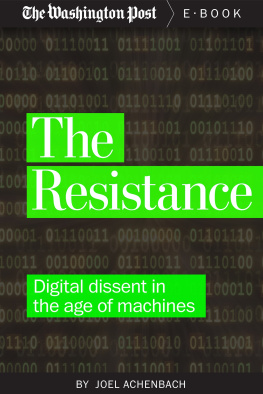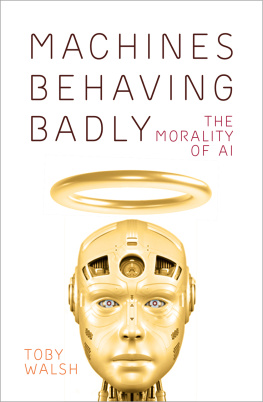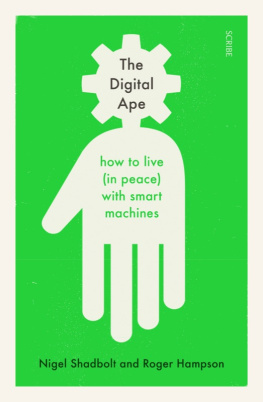C.A.U.B.
The Pitch
Nobody could know about the meeting. Everything about it was a closely guarded secret: the location, the guest list, the speakers, the organizers and above all, its very existence. All invitees were instructed, in no uncertain terms, to destroy the invitation card immediately upon reading it, and to deny, in the unlikely case that anybody ever asked, that anything like this had ever reached them.
Rumor has it that one single person on the guest list, outraged at the thought of a conspiracy, wanted to contact the press after receiving his card. Before he did so, he asked a few friends if they had been invited, too. One of them had. Word got around; threats were made. Whoever was behind the meeting knew things that nobody wanted known. The would-be spoilsport ultimately retracted his allegations, convinced the friends he'd talked to that it had all been a joke, and burned his invitation card without telling anyone else.
My informant doesn't know how many people were invited. There were, she says, somewhere between forty and fifty people at the meeting, many of whom she recognized as belonging to the uppermost strata of international society. No glossy-magazine celebrities, though. No movie stars, scandalous heiresses, or royalty.
"Well, there was one movie star," she added, months later, when we were talking via an encrypted IRC channel. "I don't think I have to tell you his name."
Quite obviously, these people had been chosen for their money. Not for their political influence though some present probably wielded quite a lot of that, if mostly behind the scenes. Nor for their popularity quite on the contrary: most of those present were notoriously private figures, fleeing the spotlight, socializing exclusively with others of their kind. They came from different countries, supported different political ideologies (or none at all), belonged to different religions (or none at all) but they all had one thing in common: they were filthy rich.
So rich they live in a world of their own. Not only would you never meet one of these people on the subway or in a supermarket; you wouldn't even see their cars on the street. Because if the bother to leave their estates and come to the city, instead of making everyone else come to them, they would, of course, travel by helicopter rather than endure the slog of traffic down below.
So rich they don't need passports. They have their own planes; in some cases, even their own small airports. When they use regular airports, there are special corridors and gates for them. They get shuttled through, no questions asked. Anybody or anything they bring with them, also gets waved along.
So rich, in fact, that quite a lot of them do not appear on that Forbes Richest People list. If you'd rather not have your name known, there are ways to opt out. And for many of these people, the benefits of invisibility are easily worth the price.
I will not give you their names. I can't; my contact didn't tell me, fo fear of being exposed. Besides, she said, most of these names would not mean anything to me or you. Our worlds don't intersect; we know as little about them as they care about us.
But they had a problem.
***
I did not believe my informant's story at first. A top-secret conspiracy of the super-wealthy? This side of mind-control rays, there are few things that scream "tinfoil hat" more loudly. The Protocols of the Elders of Zion, anyone? The Bilderbergs? Come on.
In the end, there were two things that convinced me. The first was a piece of information that my contact gave me, which only someone who had been at this meeting could have had, and which I was later able to confirm through a third party. This one, I promised not to publish. The second reason I ultimately changed my mind was my own research into the field of Artificial Intelligence, and the trends and hopes surrounding that field. A summary of that research will make up the greatest part of this book; and once you've read what I have seen, I'm confident that you, dear reader, will reach the same conclusions as I did.
Because it all makes sense. A chilling and abominable kind of sense, but sense nonetheless.
***
Here's what my contact told me.
She accepted the invitation out of curiosity and the sense of adventure it promised. She followed all the instructions: copied out the four-digit code at the bottom of the letter by hand, then burned the letter and sent the code in an unmarked envelope to a PO box overseas. A week later, her instructions arrived in the mail. They said the meeting would be held in a particular Canadian country hotel that she knew to be popular among her peers.
It was a lie.
To be sure, there was a grand reception. There even was a gala of sorts, a charity pitch to end world hunger. She remembers rolling her eyes at that because it was so cheesy.
Maybe it was partly that gesture, combined with the answers she gave when one of the other 'guests' transparently probed her for her opinion of the event, that got my contact invited to the real thing.
The real thing was a flight on a plane, the private jet of one of the lesser-known guests. They were told that someone had a proposal for them, and if they wanted to hear it, they'd have to sneak out in the middle of the night, get into one of the ten waiting limos, and be carried off to a private airport nearby for boarding. This time, though, the secrecy seemed more tongue-in-cheek, bored rich people arranging for a semblance of adventure, as they skulked across the hotel lawn in little groups, some of them drunk, exchanging whispered jokes and dry commentary. My contact remembers feeling as if everybody else were already in on whatever was coming; and so, to fit in, she acted the same way, reinforcing the surreal atmosphere. When the plane had lifted off and everybody got up from their seats to head to the lounge area in the front section, she felt light-headed even before sipping from the champagne that the host himself handed out.
They were heading due east, at cruise height, over the Atlantic; before long, they saw the sun rising behind the curved horizon, hurtling towards it at full speed.
It was there, while the plane traced a long loop over the ocean and back to the continent, that their host laid out his vision for the future and asked all of them to help make it a reality.
***
The pitch, apparently, went something like this:
We, the rich, have made a pretty good life for ourselves. We can pursue our goals in relative peace, mostly unmolested by governments and untouched by the jealousy of the masses. Our world is separate enough from theirs that, barring revolutions or unplanned war, we have nothing to fear from the twists and turns of their fickle politics.
And yet, we still depend on them in many ways. Much of our wealth is ultimately buoyed by their continuous consumption; and, maybe more importantly, many of the functions we require to support our lifestyle are still fulfilled by ordinary people. And while it probably won't bother any of us too much if our shirts are sewn together by resentful wage-slaves somewhere halfway across the globe, some of those plebs are, by necessity, much closer to our own home and hearth. The cooks or caterers, the teachers and the cleaning staff: they are as indispensible as they are bothersome, and most of all, a constant security risk.











